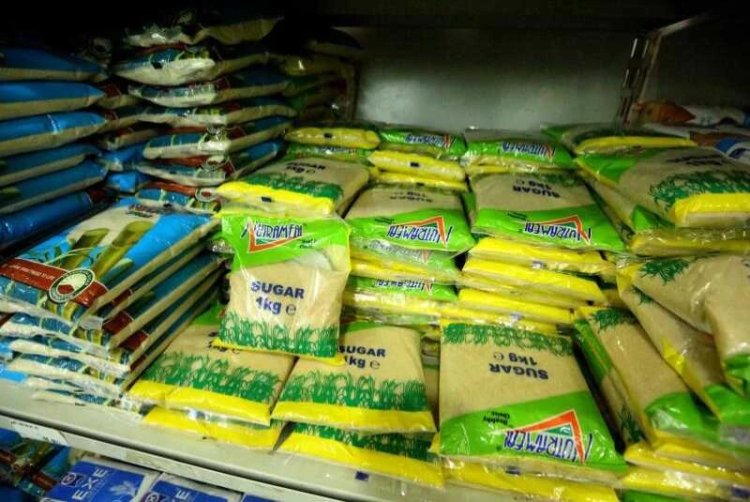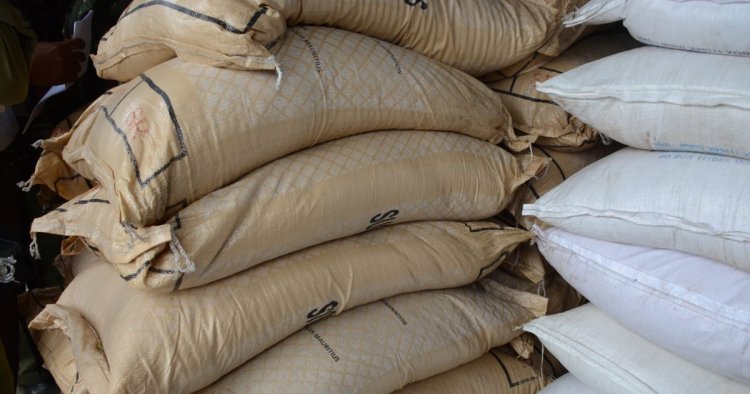How Sugar Scandal That Led To Suspension Of 27 Govt Officials Unfolded
The sugar estimated to be worth Ksh163 million was processed by Kenya Bureau of Standards (KEBS) officials after it docked at the port of Mombasa

The Directorate of Criminal Investigations (DCI) and a multi-agency team on Wednesday, May 18 raised an alarm regarding poisonous sugar being sold to unsuspecting Kenyans on the same day 27 officials attached to various government agencies were suspended from office.
Investigations by the security agencies had highlighted brown sugar packed in 20,000, 50-kilogram bags which were imported into the country in June 2018 by Merako Investments Limited from Harare, Zimbabwe.
The sugar estimated to be worth Ksh163 million was processed by Kenya Bureau of Standards (KEBS) officials after it docked at the port of Mombasa but was condemned after being deemed non-compliant with Kenyan quality standards.
According to KEBS guidelines, goods that do not conform to local quality standards should not be permitted into the country and should be re-shipped, returned or destroyed at the expense of the importer.

An image of KEBS offices. /CAPITAL GROUP
After the sugar was flagged by KEBS, the commodities were taken to a warehouse in Makongeni, Thika where it was suspected that they were stored for the last four years.
In December 2022, KEBS Managing Director Benard Njiraini wrote to Kenya Revenue Authority (KRA)'s Commissioner General stating that the standards agency had received a request from Assets and Cargo Limited to convert the condemned brown sugar into ethanol through distillation, a change of stance.
The process of turning the product into ethanol can only be done at four agencies, which include Kenya Wines Agency and Agro-Chemical and Food Company Limited (ACFC). However, the agencies mandated to handle the sugar did not follow the procedures and no taxes were paid to the government.
Njiriani's letter was copied to Trade Cabinet Secretary (CS) Moses Kuria and Head of Public Service Felix Koskei with the KRA boss receiving it five days later. The KEBS MD also disclosed to the Commissioner General that the standard act ideally provides that non-compliant goods be shipped back or destroyed at the owner's cost.
He added that the regulator had reviewed the process for destruction of the condemned sugar consignment and approved in principle its destruction into ethanol via distillation from approved manufacturers.
The underhand activities had escaped the watchful eye of KRA which took action this month after Faith Kiara on April 29, on behalf of the Commissioner Intelligence Strategic Operations Investigations and Enforcement, wrote a letter to release the condemned sugar on the condition that pending taxes be paid 30 days after the consignment's release.
After the two government agencies processed the release of the consignment, KEBS sent its inspection officer to Thika on May 4, 2023, to join the multi-agency team officers and the DCI who were to open the warehouse forcefully to confirm whether the consignment was still in place.
However, upon arrival at the godown, the team found that it was empty despite the existence of KRA seals on the locks of the warehouse, with the strong possibility that the sugar was dispersed to markets across the country with some likely to be on supermarket shelves for sale.
Sugar With Harmful Chemicals
Those arrested and grilled said they were ordered to release the sugar and have it transported to Thika via the Standard Gauge Railway (SGR) where it was to be repurposed. More than 14,000 bags were recovered and analysed by the Government Chemist and traces of mercury, copper, mould and yeast were found.
Despite the bags being marked as 'not safe for human consumption' unscrupulous retailers repackaged them in 1kg and 2kg packets and sold them under the guise of local brands among them Kabras, Mumias Sugar, West Sugar and Kilimo Kenya.
A consignment of more than 1,417-50 kgs bags was found in Beder Stores in Eastleigh and Paleah Stores at the Ruiru bypass, with packaging labels revealing that the sugar originated from Zambia and Brazil.
At the Paleah Stores, officers recovered 581 bags of sugar labelled Brazil, 49 bags labelled Zambian Sugar, 238 bales containing 10-2kg packets, 132 bales containing 20- 1 kg packet, 8 bags of unlabelled sugar and 409 bags purported to be from Nzoia Sugar.
Also recovered was a mixer machine which former DCI boss George Kinoti said was being used for mixing genuine and harmful sugar before packaging.
During a press briefing following the recovery, former Interior Cabinet Secretary (CS) Fred Matiang’i warned that the sugar had impurities that could be cancerous.

Sacks containing sugar. /KENYA NEWS AGENCY
"I want to be frank with the people of Kenya that we have to change the way we live. We are not going to be polite about this," he added.
DCI has since launched investigations and is also searching for the consignment as it pursues KEBS bosses over the whereabouts of the condemned sugar that was meant to be destroyed.
President Ruto took action by suspending Njiriani as well as officials from KRA, DCI, National Police Service and Agriculture and Food Authority (AFA), among others to pave the way for investigations.

 admin
admin 




